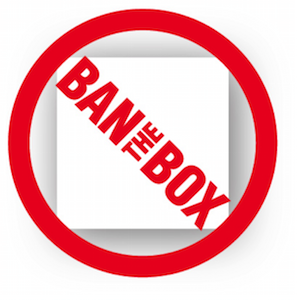 More than 20 states have passed “Ban the Box” legislation that prohibits potential employers from asking job applicants to check a box if they have criminal records. The federal government has urged colleges and universities to stop asking potential applicants if they have a criminal records.
More than 20 states have passed “Ban the Box” legislation that prohibits potential employers from asking job applicants to check a box if they have criminal records. The federal government has urged colleges and universities to stop asking potential applicants if they have a criminal records.
But a new study by researchers at the University of Michigan and Princeton University finds that Ban the Box legislative initiatives may actually lead to an increase in racial discrimination by employers. Researchers submitted nearly 15,000 online job applications to employers in New York and New Jersey. Employers were sent applications from fictitious Black and White prospects both before and after the jurisdictions passed Ban the Box legislation.
In the first wave of applications before Ban the Box legislation took effect, prospective employees with no criminal record received 63 percent more job interview requests from employers. Whites received just 7 percent more job interview requests than Blacks.
In the second wave, sent after the legislation was in force, the researchers found widespread compliance by employers who n longer asked applicants if they had a criminal record. However, under circumstances where criminal records, if any, remained concealed, Whites received 45 percent more inquiries than Blacks.
The researchers conclude that if employers don’t have information about criminal records, they are more likely to rely on their assumptions and racial biases. Co-author Amanda Agan, who was a postdoctoral researchers at Princeton University when the study was done and who will be an assistant professor of economics at Rutgers University this fall, said “when you take criminal record information away, some employers seem to simply assume that Black men are likely to have criminal pasts. So Black men without conviction records, who won’t be able to reveal that fact to employers, may be the ones who bear the costs of Ban the Box. This is especially troubling because Black male unemployment levels are already more than twice the national average.”
The study, “Ban the Box, Criminal Records, and Statistical Discrimination: A Field Experiment,” was co-authored by Sonja Starr, a professor at the University of Michigan Law School. It may be downloaded here.











Wow! Black men just cannot get a break in this country!
can we stop softening the word RACISM by calling it “racial biases” ? PLEASE!!
This is BEFORE any interviews, right? Just an initial application for an interview? So, wait, how did these employers know, unless the supposedly anonymous applicants supplied the information, the race of the applicant? Because I’m pretty sure employers can’t ask about that online.